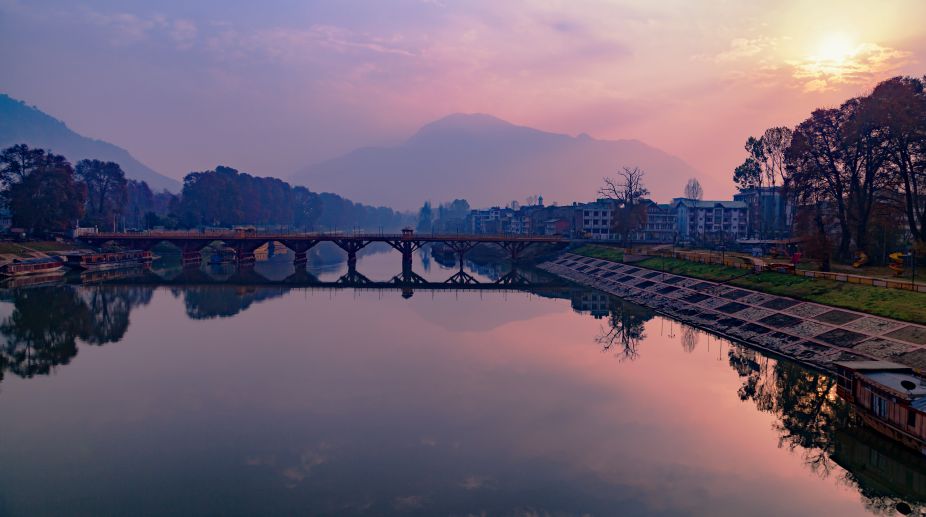Omar calls for intensified efforts towards initiating cadaveric organ donation in J&K
He assured full government support in strengthening these institutions to promote a healthier society.
Work on the Kishanganga project was started in 2007, but Pakistan moved the International Court of Arbitration in 2010 claiming the project was in violation of the 1960 Indus Waters Treaty that regulates use of waters of the shared rivers. In 2013, the court allowed India to go ahead with the construction

The project is designed to divert water from the Kishanganga river to a power plant in the Jhelum river basin (Representational photo: Getty Images)
Prime Minister Narendera Modi will during his expected visit to Jammu and Kashmir on 19 May dedicate to the nation North Kashmir’s 330 mega watt Kishanganga hydroelectric project, the construction of which had been opposed by Pakistan which had moved the International Court of Arbitration in the Hague.
By constructing the project, India has in a way asserted its rights on the river’s water under the Indus Waters Treaty. While moving the court of arbitration, Pakistan had accused India of violating the treaty by constructing the Salal, Dul-Hasti and Baghliar projects on Chenab river in Jammu division.
Advertisement
Work on the Kishanganga project was started in 2007, but Pakistan moved The Hague court in 2010 claiming the project was in violation of the 1960 treaty that regulates use of waters of the shared rivers.
Advertisement
It was a great victory for India in 2013 when the court allowed India to go ahead with construction of the project just near the Line of Control (LoC) between India and Pakistan-occupied Kashmir (PoK) in the Bandipora district of the Valley. Kishanganga has been named as Neelum in the PoK. The international court asked India to let 9 cubic metres of water flow into the Neelum.
The Kishanganga project constructed at a cost of Rs 5,750 crore will generate 1713 million units of electricity per annum.
PM Modi is also scheduled to fly to Leh on the same day to participate in the 100th anniversary celebrations of Kushak Bakula, the most respected spiritual and temporal leader of Ladakh.
During his visit to Ladakh, Modi is likely to lay foundation stone for the strategic tunnel that would bypass the formidable Zojila Pass and cut short the distance between Srinagar and Kargil.
The PM is also expected to inaugurate a new route to the Vaishnodevi shrine,
And take stock of the utilisation of the Rs 80,000-crore development package for J&K that he had announced earlier.
Advertisement